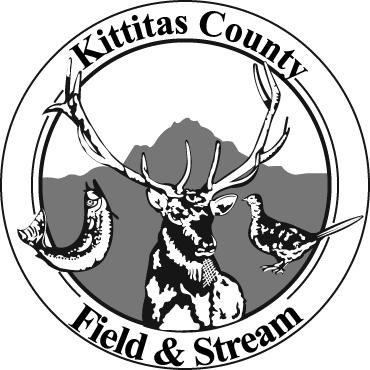Each year about now I get excited to see an old friend – one I don’t see so much here in Paradise (and not all that commonly anywhere on the Cascades’ east slopes, actually). I almost forget how much I miss the excitement until, one afternoon, I hear that distant rumble and see his flash up over the Naneum or off toward the Basin. I caught a glimpse of him last week – took me right back to being a kid in East Wenatchee, Washington.
By mid-spring, the waiting would get almost unbearable. I don’t think I knew what I was awaiting. I do recall that, as the last of the winter’s snow disappeared, and those warm chinooks swept down off the Cascades and out into eastern Washington, the anxiety rose. Not like it would make you crazy, but as the air got warmer and drier, it became harder to concentrate on the three R’s.
Then one morning, I would arise knowing that something was afoot. There would be a sweet discomfort to the air, even inside. On the walk to school, my lungs couldn’t get enough of that air. I wanted to yell to everyone “This is the day!” but I didn’t even know what that meant.
By noon the clouds would be building. About the time school let out, he would be everywhere. The sky would fill with LIGHTNING! and the earth would tremble with his voice. The dry, nervous air of past weeks would settle as the rains came, and I would feel fully, joyfully ALIVE. I would watch, transfixed, until the lightning stopped.
Maybe I became a meteorologist out of my fascination with lightning. I see my old friend as the Alka-Seltzer of the air, bouncing between negative and positive charges on the ground or clouds, neutralizing atmospheric ions that make us so irritable or uncomfortable at times.
My lightning excitement peaked when I was a graduate student at the University of Kansas. The first meteorology class I taught was full of young people who saw no sense in knowing anything about the weather. Several of them observed that since they drove air-conditioned cars and lived and studied in climate-controlled rooms there was no need to even think about the weather. As they saw it, they were totally insulated from Nature and all that weather.
There were two things I loved about the thunderstorms that swept across central and eastern Kansas. First, they were often nighttime storms – something I had never seen in my life on the east sides of the mountains in Washington, Idaho and Colorado. On top of that, I could lay in bed, look out my window to the west, and watch the spectacular lightning show as it dashed and sizzled and danced from cloud top to cloud top. The show might last an hour or two before it passed over and around us. I loved it.
Generally, the discomfort people feel with very “dry” or very “humid” air has to do with the electrical ions in the air. With very dry air, particularly when there has been a downslope warm wind, there will be an excess of negative ions. With such negative ion excess, people get irritable and short-tempered. A good example might be the ways people in Los Angeles react when the Santa Ana winds are blowing in off the desert. During these winds, numbers of people become hyper, squabbling over trivial matters. Accidents increase. On the other hand, water vapor molecules carry an excess of positive ions. If there is a great deal of water vapor in the air, we tend to be fussy and uncomfortable, with a “leave me alone” attitude.
In the spring of 1971, we had a time of very warm, windy and dry weather. The graduate students would bicker over anything in our study room. (Do you HAVE to turn those *!^# pages so loud?) It was great. Then, one night before an early-morning class with my “insulated” ones, a line of thunderstorms moved through – maybe the best ever –with two and a half hours of fireworks. As it approached, drawing warm moist air in ahead of it, the humidity (and its positive ions) rapidly increased in the air around us. The kids’ mom couldn’t sleep, and our kids, one by one, drowsily came into our room. “What’s wrong, honey?” I’d ask? “I don’t feel good,” they’d say. “Well, what’s wrong, then, honey?” “NUTHIN’! I just don’t feel good. I can’t sleep.” As they huddled around our bed, each alone, groaning, I forgot all about sleep and watched the celebration in the western sky.
As the storm finally passed over us, a dozen lightning strikes crashed and exploded within a hundred yards of the house, balancing all those negative (clouds) and positive (ground) charges. When the storm moved out, my family was out. Mom in bed and Michelle on the carpet near her. Nicole was on the floor next to her bed and Tim was sprawled on his bed with one foot on the floor.
My students were all yawning the next morning. “Just couldn’t sleep ‘til after the storm,” they said. “Not insulated enough, I guess,” I replied.
One of these days or weeks in Paradise… If it can just resist starting fires, it will be glorious.




